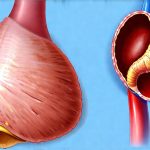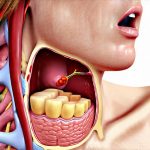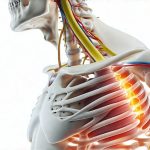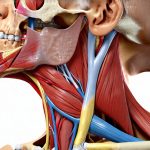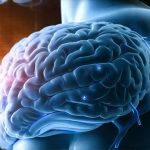Hiccups are an almost universal human experience – those involuntary contractions of your diaphragm that can range from mildly annoying to utterly disruptive. Most hiccups resolve quickly on their own, but persistent or frequent hiccups can be concerning, prompting questions about their causes. While often dismissed as a trivial inconvenience, the underlying mechanisms behind hiccups are complex and increasingly understood. One surprising connection emerging in medical research is the relationship between gastroesophageal reflux disease (GERD) and these involuntary spasms. Understanding this link may offer new avenues for managing both conditions and improving quality of life for those who experience them regularly.
This article will explore the fascinating interplay between GERD and hiccups, delving into the physiological mechanisms at play, potential contributing factors, and what current research suggests regarding diagnosis and management. It’s important to note that this information is intended for educational purposes only and should not be considered a substitute for professional medical advice. If you are experiencing persistent or concerning hiccups, consulting with a healthcare provider is crucial.
Understanding the Basics: GERD & Hiccups
Gastroesophageal reflux disease (GERD) occurs when stomach acid frequently flows back into the esophagus, irritating its lining. This can lead to symptoms like heartburn, regurgitation, and difficulty swallowing. While often associated with dietary or lifestyle factors, the underlying cause is typically a weakened lower esophageal sphincter (LES), the muscle that prevents stomach contents from backing up. Hiccups, on the other hand, are involuntary spasms of the diaphragm – the muscle responsible for breathing – and intercostal muscles. These spasms trigger rapid closure of the vocal cords, resulting in the characteristic “hic” sound.
The Vagus Nerve Connection
The vagus nerve is a cranial nerve that plays a crucial role in many bodily functions, including digestion, heart rate, and even speech. It’s deeply intertwined with both GERD and hiccups. The vagus nerve extends from the brainstem to the abdomen, innervating several organs along the way. In the context of GERD, vagal dysfunction can contribute to a weakened LES, increasing the likelihood of acid reflux. Similarly, stimulation of the vagus nerve is often cited as a primary trigger for hiccups – whether through rapid eating, emotional stress, or even changes in temperature.
How GERD Might Trigger Hiccups
The link isn’t always straightforward, but chronic acid exposure from GERD can irritate the esophagus and stimulate the vagus nerve. This constant irritation essentially keeps the vagus nerve “on edge,” making it more likely to initiate a hiccup reflex. The prolonged inflammation caused by reflux can also affect esophageal motility – how efficiently food moves down the esophagus – potentially disrupting normal digestive processes and contributing to hiccups. Some individuals may experience hiccups specifically after episodes of significant heartburn or acid regurgitation, suggesting a direct temporal connection.
Hiccups as a Potential GERD Symptom
While heartburn is typically considered the hallmark symptom of GERD, hiccups can sometimes be an atypical presentation, particularly in less common or more subtle cases of the disease. Persistent or refractory hiccups (hiccups that last for extended periods) should raise suspicion for underlying medical conditions, and GERD should be considered as a possible contributor. It’s important to note that this isn’t necessarily the case for every hiccup episode; occasional hiccups are normal. However, frequent, prolonged, or unexplained hiccups warrant investigation.
Diagnostic Challenges & Management Approaches
Diagnosing the connection between GERD and hiccups can be challenging because hiccups have many potential causes. A thorough medical history and physical examination are essential starting points. Doctors might utilize diagnostic tests for GERD such as endoscopy (to visualize the esophagus) or esophageal pH monitoring (to measure acid levels). Managing this interplay often involves addressing the underlying GERD through lifestyle modifications like dietary changes, elevating the head of the bed during sleep, and avoiding trigger foods. Medications to reduce stomach acid production (proton pump inhibitors or H2 receptor antagonists) may also be prescribed. For persistent hiccups specifically, a healthcare professional might explore other treatment options beyond GERD management, as appropriate.
It’s vital to remember that self-treating either condition is not recommended. Consulting with a physician for proper diagnosis and personalized treatment plans remains the most effective approach.


